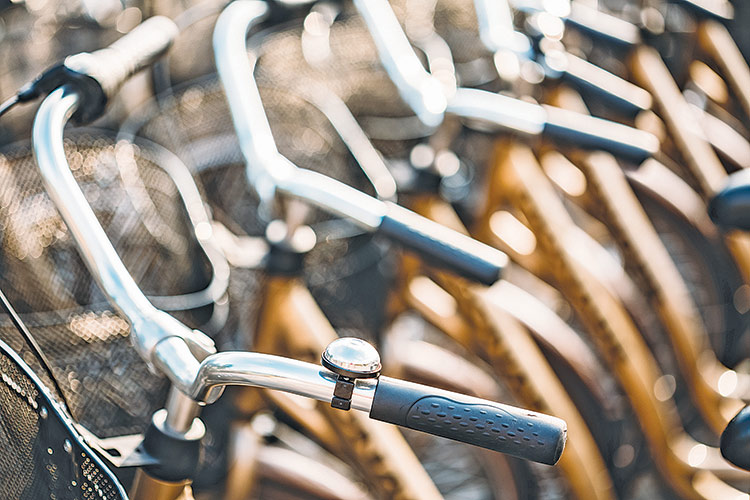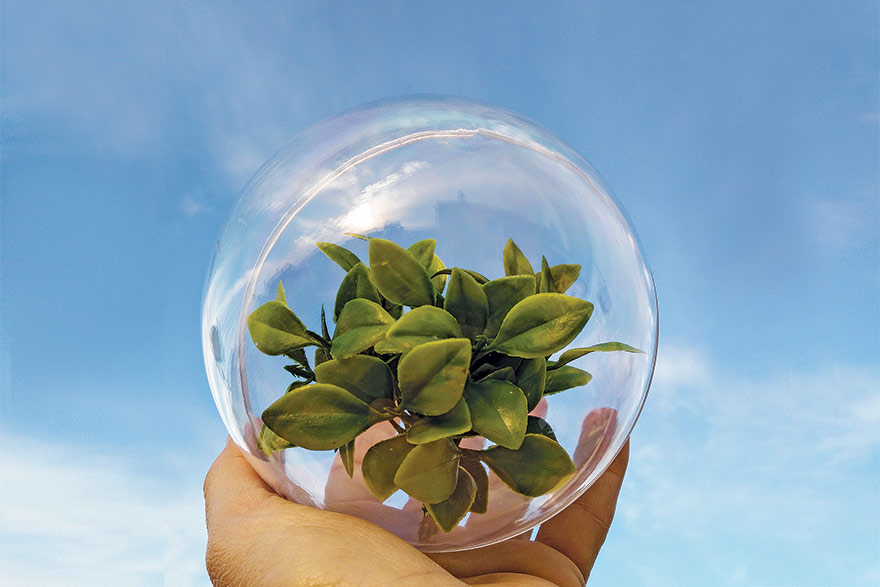Known for being one of the world’s most innovative countries, Sweden has good prospects to be at the forefront of circular economy practises. From the perspective of business, this can create many new advantages and opportunities for Swedish companies operating on the global market.
Sweden aspires is to become one of world’s first fossil-free nations, as part of its commitment under Roadmap 2050, and a circular economy should play an important role in reaching this goal. In July 2020, the Swedish government introduced a national strategy for the circular economy, outlining the country’s determination to accelerate its transition to a circular economy. This should help achieve Sweden’s ambitious environmental and climate change objectives.
Time will be needed to transition from a linear economy, where valuable material is used only once and then discarded, to a circular economy that is smart and much better for the environment. In general, the timeline describing the evolution of Swedish waste management over the last 50 years can be described as following:
– 1970s and ‘80s: recycling processes introduced, leading to less than 1% of Swedish household waste ending up in landfills today. The other 99% is recycled in various ways. This is in stark contrast to 1975, when only 38% of household waste was recycled. This is referred to as the Swedish Recycling Revolution, as the rapid increase in environmental awareness and recycling over the last several decades has led to something of a ‘revolution’.
– 1990s: eco-cycling, which is aimed at waste prevention, changing consumption habits and introducing more efficient production methods. Swedish towns and municipalities developed a tradition of using a systematic approach by taking into account that municipal practises and functional policy areas are interrelated and impact one another.
– 2000s: sustainability has been successfully introduced in Sweden by combining citizen engagement, high ambition levels, set by both the public and private sectors, and international solidarity. As a result, Sweden has repeatedly ranked as the world’s most sustainable country over recent years.
– 2010s: the circular economy takes off in Sweden, as a country that is particularly well placed to take a leading role in enabling the production and delivery of resource- efficient goods, solutions and services. Sweden’s national strategy for the circular economy was introduced in 2020.

It is important to note that if the Swedish transition to a circular economy is to succeed, it needs to be implemented jointly by politicians, the business sector, the public sector, academia, private citizens and civil society. The role of government is to create the necessary conditions to encourage and support the good work that is already underway in the country’s regions and municipalities, the business sector, universities and civil society.
The role of government is to create the conditions necessary to encourage and support the good work that is already underway in the country’s regions and municipalities, the business sector, universities and civil society
Each strategy should have a vision at its core. The Swedish government hopes that this strategy will lead to “a society in which resources are used efficiently in toxin-free circular flows, replacing new materials.”
As such, work on a national circular economy strategy will focus on the following key areas:
• Sustainable production and product design.
• Sustainable ways of consuming and using materials, products and services.
• Toxin-free and circular eco cycles.
• The circular economy as a driving force for the business sector and other actors, through measures to promote innovation and circular business models.
Known for being one of the world’s most innovative countries, Sweden has good prospects to be at the forefront of circular economy practises. From the perspective of business, this can create many new advantages and opportunities for Swedish companies operating on the global market. It should also lead to the creation of new companies and jobs, while contributing to reducing environmental impact.
ABOUT THE AUTHOR
Ronny Arnberg has worked at Borlänge Energi AB since 1972, where he currently holds the position of President of Development and International Division. Borlänge Energi is a public utility company wholly owned by the Municipality of Borlänge, which is located some 200km northeast of Stockholm. The company delivers a whole range of services to its customers, such as tap water, electricity and district heating, waste handling, broadband access and management of all green areas within the municipality. Ronny helped to develop and implement the municipality’s first ever waste plan, which included a 100% waste sorting system for recycling. Since 2012, he has also been involved with IVL – Swedish Environmental Research Institute, serving as project manager and sales coordinator. In his work at IVL, he is focusing on the following key areas: – Coordination and supervision of projects related to waste management technologies and approaches, including business models and management aspects; – Carrying out feasibility studies and strategic planning related to recycling and the use of waste materials in efficient and environmentally sound ways; – Mentoring and supervising master thesis students in international projects. Ronny’s participation in international projects ensures that he has extensive experience of working in international, multi-cultural and multi-language settings. In this part of Europe, he assisted and advised on the creation of Albania’s National Energy Plan in 2013. Since 1998, he has played an advisory role in multiple EU-level projects related to water, sewage, waste and energy in Romania. He maintains several professional memberships, such as serving in the role of Vice President of Swedish Environmental Technology since 1999.
